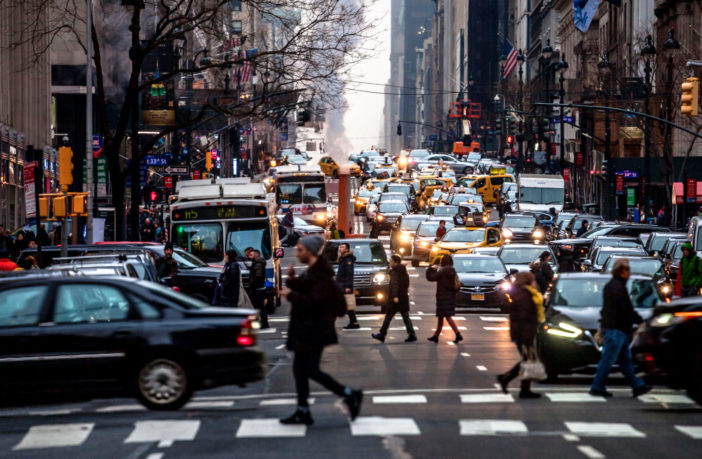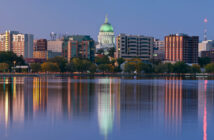New York City Council is set this week to become the latest, and largest, jurisdiction to give voting rights to non-citizens. Officials frame the move as a reasonable extension of the franchise, but it will water down citizens’ votes and could lay the groundwork for illegal aliens to cast ballots.
“Someone who has lived here for 30 days will have a say in how we raise our taxes, our debt and long-term pension liabilities,” notes Joseph Borelli, a Republican councilman who represents Staten Island.
Currently, 14 municipalities in the U.S. allow non-citizens to vote in local elections: San Francisco, 11 cities in Maryland and two in Vermont. Fourteen states do not bar localities from enacting their own voting rules.
New York’s 800,000 non-citizens are a huge electoral cache whose numbers could swing local elections there. The U.S. has more than 12.3 million Lawful Permanent Residents (LPRs), with an additional 2.2 million foreign nationals here on temporary visas.
New York Mayor Bill de Blasio is wobbly on his city’s move. “[It’s] certainly not something I’d be intending to veto, but it’s also not something I’m sure is the right way to go about this.”
While proponents decry “taxation without representation” – an argument equally applicable to illegal aliens who also pay billions of dollars in taxes — American laws do not entitle foreign residents to every right and privilege of U.S. citizens. A green card holder who commits a crime can be deported. Aliens cannot serve on juries, run for public office or access certain government jobs.
Vermont Republican Gov. Phil Scott vetoed his state’s non-citizen voting law on practical grounds that “allowing a highly variable town-by-town approach to municipal voting creates inconsistency in election policy, as well as separate and unequal classes of residents potentially eligible to vote on local issues.”
The Vermont Legislature overrode Scott, and with de Blasio apparently on board in New York, U.S. Rep. Jeff Duncan, R-S.C., calls non-citizen voting “the left’s next target,” with the Democratic Party the biggest beneficiary.
Dale L. Wilcox, executive director and general counsel of the Immigration Reform Law Institute, says non-citizen suffrage “amounts to a watering-down of the importance of citizens’ votes, and empowers those who may have little to no understanding of uniquely American principles like the Bill of Rights, federalism and a government of, by and for the people. This is an incredibly dangerous precedent.”
Duncan sees a nexus with the mass-immigration agenda. “In the same way that a strong border is what protects the citizens of the United States from drug trafficking and terrorism, a strong border between who is and is not a voting member of our Republic based on citizenship protects and upholds the legitimacy of our institutions.”
He concludes, “If non-citizen immigrants have concerns about what they believe to be discriminatory aspects of our laws, they are absolutely free not to come.” And if voting here is important to them, they can apply for citizenship.#




